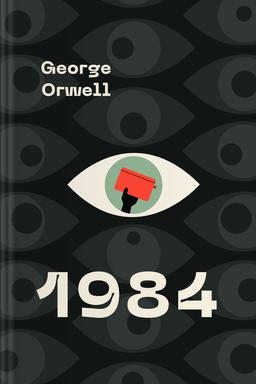You’ll learn
- Why skepticism is your shield against tyranny
- How propaganda shapes your reality
- The unseen cost of total obedience
- Orwell's warnings for our digital age
Protect the world’s peace. Donate to support Ukraine

first KEY POINT
Totalitarianism is a system of government in which the people have virtually no authority, and the state wields absolute control. Leaders of totalitarian systems are shrouded in a mysterious cloud of fear that doesn’t let anyone have enough detail about them to judge or have an opinion.There is absolute control over what the masses read, eat, wear, hear, and so on. There is little room for people to feel like free-willed humans due to the strict guidelines they must follow.Super-surveillance is a tool employed to ensure total compliance from the population. Rulers keep an eye on the masses, ensuring they follow the rules and regulations and punish those who falter. This concept is known as Big Brother, often repeated as “Big Brother is watching,” creating the illusion of an all-powerful, all-seeing eye you dare not defy. But this is yet another tool to frighten people into subservience and obedience.In reality, there was no omnipresent, omnipotent Big Brother anywhere. It was simply that the government had other people in positions to report aberrations. They were called “Thought Police,” monitoring people covertly to ensure they didn’t act out of line or form independent thoughts. If they noticed any deviations, they kidnapped the offender discreetly and brainwashed them until they behaved accordingly.In a normal society, rules and a moral code hold people to specific standards. Proper behavior is a common thing, and there are punishments for deviation.
A sense of duty and loyalty is born of intention, not compulsion. In this summary, you'll discover how dangerous and inhumane it is to operate a system of totalitarianism. You'll also learn how totalitarianism forces people to conform to strange laws and unnatural punishments. You'll learn how classism, mass media control, government surveillance, and manipulations can control history, thoughts, and lives.Did you know? Totalitarianism started and ended at different times in different parts of the world. Wikipedia reports Turkmenistan is still actively under totalitarianism as of 2022.
second KEY POINT
Totalitarianism employs a heavy dose of propaganda to ensure total obedience. Propaganda is a concerted set of messages aimed at influencing the opinions and behaviors of large numbers of people.

Continue reading with Headway app
Continue readingfirst KEY POINT
second KEY POINT
third KEY POINT
fourth KEY POINT
fifth KEY POINT